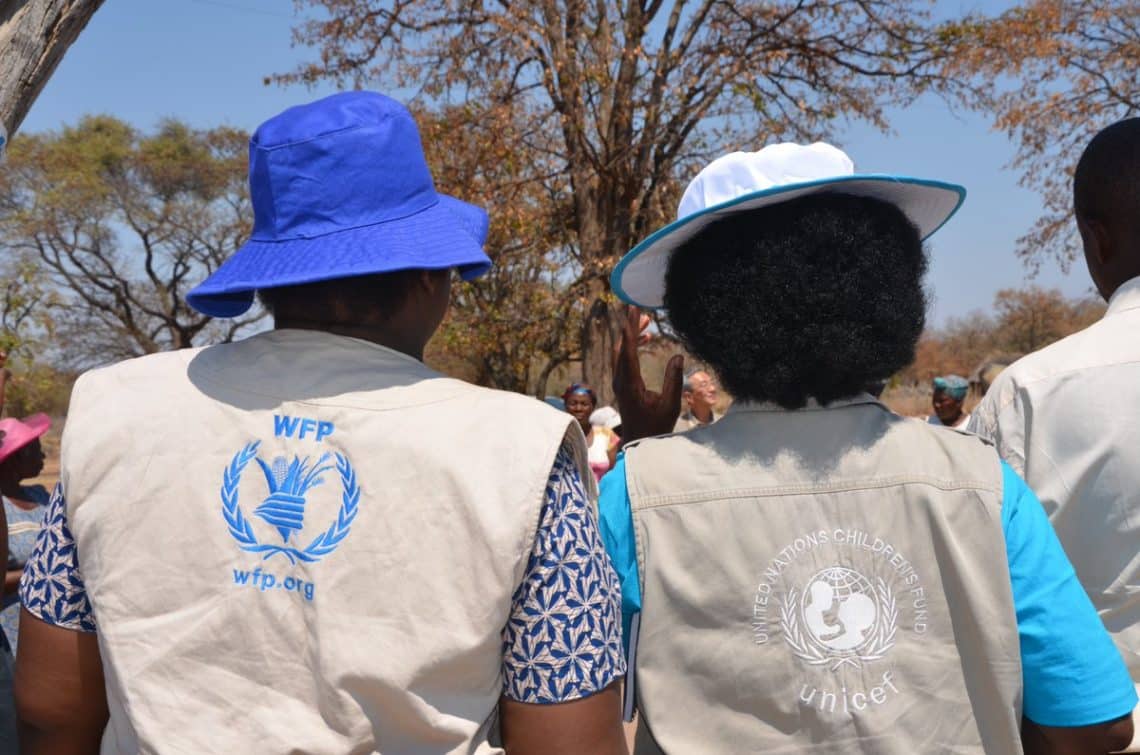At Tsholotsho Hospital on Thursday 11 October 2018, the Government of Japan officially handed over a contribution of US$ 1 million to enhance the resilience of drought- and flood-affected communities in Zimbabwe through a comprehensive set of health, nutrition, food security and WASH (water, sanitation and hygiene) interventions.
The project is being implemented by the United Nations Children’s Fund (UNICEF) and the United Nations World Food Programme (WFP) in collaboration with the Government of Zimbabwe.
The project, set to benefit 130,000 people across 11 drought- and flood-affected districts over the course of a year, is helping to safeguard the resilience of the most vulnerable, especially women and children.
The Ambassador of Japan to Zimbabwe, H.E. Mr Toshiyuki Iwado, said that “women in rural areas play a vital role in growing as well as cooking food for their families, and children are the ones who are going to inherit Zimbabwe in the future. Therefore, it is essential to ensure that the needs of rural women and children are met. “
WFP and UNICEF are jointly implementing preventive health, WASH and nutrition care interventions – including nutrition screenings and services, trainings on safe cooking and infectious diseases, and borehole rehabilitations – in Tsholotsho, Mutoko, Centenary, Mbire, and Mt Darwin districts.
In Mt Darwin, in addition to these activities, WFP is implementing Food Assistance for Assets programmes in selected communities which build resilience against future shocks. When completed, the weir dams, nutrition gardens and other projects will help households to generate income and reduce reliance on food assistance.
“Access to clean and safe water is essential for food and nutrition security,” said WFP Representative and Country Director Eddie Rowe. “We cannot achieve Zero Hunger unless we also invest in WASH.”
In addition, WFP food and nutrition support is being provided to pregnant women at maternity waiting homes in Tsholotsho, Bubi, Umguza, Lupane, Hwange, Binga and Nkayi. For many of these women, the assistance provides them with an incentive to give birth in hospitals where they can receive obstetric care and support for a safe delivery by trained staff, thus helping to reduce instances of maternal and child mortality.
“Building resilience in drought- and flood-affected communities ensures that vulnerable children and women have long-term solutions for favourable food security and health outcomes,” said UNICEF Representative Mohamed Ayoya.
The project is set to run to March 2019, and further funding is required to continue the support and increase impact. The activities directly contribute to strengthening the capacity and fulfilling the aims of the Government of Zimbabwe towards achieving the Sustainable Development Goals, particularly Goals 2 (Zero Hunger) and 3 (Good Health and Well Being).






